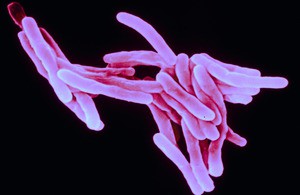4th June 2015 Geneva, Switzerland
Mobilising the United Nations to Save Modern Medicine

With our televisions screens filled by images of seemingly endless civil wars, spiralling sectarian horror, and rising humanitarian misery, many have concluded that the international system is failing, even broken.
Yet on 25 May an event took place that tells a different story. One that gives hope to all those who believe that the United Nations was founded to tackle the biggest challenges that we face as a planet and a species.
At one level it appears a modest and rather technical step. Following a week of deliberations, the World Health Assembly meeting in Geneva agreed a Global Action Plan to tackle antimicrobial resistance – AMR, in the jargon.
But in reality what was agreed on 25 May is hugely ambitious. The world’s nations have come together to tackle one of the looming crises of our generation, and our children’s generation. The drugs that ushered in the greatest medical miracle of the twentieth century, that did the most to raise human life expectancy on our planet, are beginning to fail.
Globalisation has its dark side. Just as people are moving around the world in exponentially increasing numbers, so too is disease – or more accurately, the microbes that cause disease.
The world was horrified last year by the spread of Ebola into the cities of West Africa and from there to outbreaks – mercifully swiftly controlled – in countries around Europe and in the United States.
But an even greater threat, microbes that could spread around the world and kill millions, are already very familiar to us. They are the microbes that we thought we had defeated using modern antibiotics.
Charles Darwin showed us how natural selection is responsible for the wonderful biodiversity on our planet. Unfortunately it is also responsible for the evolution of microbes that have developed a resistance to penicillin and many other antibiotics. Every time antibiotics are used to treat the wrong microbe – a virus say, instead of a bacteria – or are used inconsistently, or are overused, natural selection is given its chance to find the mutation in the microbe’s population that gives them immunity against our drugs, our antibiotics.
It is only a matter of time before the sort of infection that turned childbirth or the simplest operation into a lottery with death is amongst us again. But unlike in the era before the invention of penicillin, this time these killers will be turbocharged by globalisation.
Scientists and doctors in laboratories around the world have been sounding the alarm with increasing desperation. A little over two years ago, they were joined by the governments of the United Kingdom and Sweden, thanks to the leadership of some remarkable public servants in both countries, England’s Chief Medical Officer Sally Davies amongst them. They concluded that only a global plan of action could tackle the misuse of antibiotics in our households, pharmacies, hospitals and farms. No one country or organisation can tackle this alone.
We commissioned research into what could be done, and what would happen if it was not done. The O’Neil Review, led by the famous economist who has played a leading role in shaping our thinking about globalisation, has modelled scenarios that suggest 10 million people could be dying unnecessarily every year in 2050 from simple infections. One of the biggest problems in that the world’s pharmaceutical companies have not been developing new antibiotics, because of the unattractive risk/return ratio on investment for these drugs.
And we have mobilised internationally. Our Prime Minister, David Cameron, took up the cause during our G8 Presidency in 2013 and also put it on the G20 agenda in 2014. Angela Merkel has made it a centre piece of the German G7 Presidency this year. The media is taking notice.
But only the United Nations has the global expertise and the global convening power to tackle the problem itself. That is why the UK and Sweden turned to the World Health Assembly, the governing body of the World Health Organisation that brings together all the countries in the world. We sponsored a resolution at last year’s World Health Assembly that put antimicrobial resistance right at the top of the global health agenda. And this year we pushed to get agreement to a global action plan so that all the countries of the world could play their part, as they must if we are to be successful, in reversing the creeping obsolescence of antibiotics. In addition, members of the UN Food and Agriculture Organization will soon adopt an important resolution on tackling AMR in agriculture.
To coin a phrase, this is only the end of the beginning. Changing behaviour towards antibiotics globally is a challenge so daunting as to be almost overwhelming. We also need to change the economics of antibiotics if we are to have any chance of staying ahead of evolution.
The United Nations alone is not sufficient to tackle this task. But it is indispensable. It is the essential framework for implementing our Global Action Plan. And it is the only body that can mobilise the whole world politically. The goal now is to acclerate that mobilisation, and raise AMR to the top of the United Nation’s agenda. That is why we have secured a high level meeting at the UN General Assembly in 2016.
People look at the world’s virulent conflicts and sometimes wonder whether the UN has a future. Those of us looking at its virulent diseases know it does.